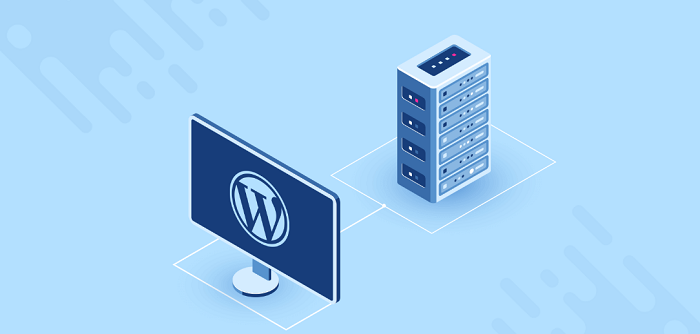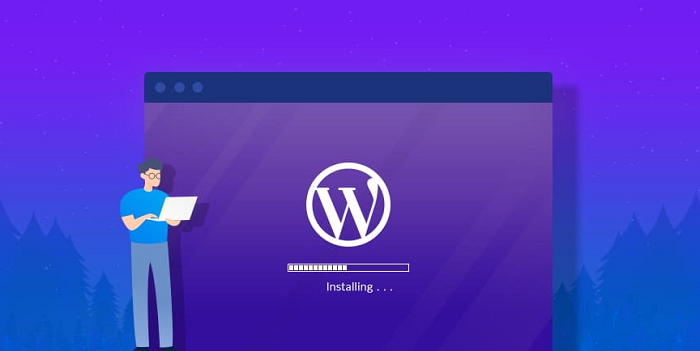If you’re a beginner at website development, you might have a question. Why is WordPress hard to use? As big and famous as it is, WordPress is frequently misunderstood as primarily being used for creating blogs. That was, in fact, the case at one point in time. It was created as a blogging platform, but with the numerous updates over the years, that has radically changed.
That’s all included from the beginning, making it by far one of the easiest and fastest ways to write and publish blog entries. Some website creation solutions prioritize design and apps before considering the blogging interface, and it cannot seem very easy in many ways.

However, the bigger case is where you come from in the field of website development. If you’re someone who builds web pages from scratch (using HTML), then using WordPress might feel like a piece of cake. Hence, the requirements and procedures for building a website with WordPress can be overwhelming to some and none to others.
Building websites in itself is pretty complicated. Hence, it is only natural to find the platform complicated. In this article, we will discuss a common question why is it hard to use?
Reasons why WordPress is hard to use
WordPress Requires Third-Party Assistance
As one would know, websites in WordPress depend on themes and plugins, and hence, this is the first reason for being it hard to use. Both tools are digitally purchased from foreign agencies to get the best one. However, these outside agencies are not linked or tied up with WordPress.
The fact that plugins and themes give you so much control over your website makes them fantastic. However, because they all originate from various third-party developers, they also significantly increase complexity.
You can’t learn a single interface that works for all plugins because they may utilize completely distinct interfaces. Additionally, these plugins occasionally clash with one another, which raises a whole new set of problems.
WordPress’ Initial Setup isn’t Simple
WordPress must be installed on a server before being used because it is open-source software, not a service like website builders (Wix, Weebly, Squarespace, Blogger, etc.).
Although there are numerous WordPress-specific hosts (such as SiteGround or Kinsta), setting up a hosting environment is still more complex than beginning your work with website builders.

Managed WordPress services allow for one-click installation on your website, but that is not the complete picture. After installing it, you’ll typically need to continue tweaking it.
Moreover, a barrier for non-technical users is choosing WordPress hosting that is dependable, quick, and high-quality. If you can’t find the right one, it can get complicated.
Inbuilt Complex Settings
Due to the availability of hundreds of free themes, another reason why it is hard to use is that they frequently struggle to choose the best theme for their blog.
Worse so, there are a bewilderingly large number of configuration choices in contemporary WordPress themes, including settings for the sidebar, widgets, and headers.
The numerous color options available that only serve to confuse you further are another point worth highlighting.
See Also: Selecting a WordPress Development Team
Overwhelming Web Designing
Another reason for WordPress’ complicated usability is the difficulty in designing. Being in charge of your site’s layout can be a lot of work if you’re not a web designer.

While WordPress themes can provide you with a strong starting point, you’ll probably still need to invest some time in personalizing your chosen theme to make it uniquely yours.
Making all these decisions if your theme has several modification options can be complicated, especially if you’re not a designer. In addition, using custom CSS code to make changes if the available options are limited adds another level of complexity.
Is WordPress worth considering?
Now that you the reason why WordPress is so hard to use, you might as well want to know why it is worth considering. Nearly a quarter of big websites are developed in WordPress. So, there are good things, and we will look into that.
Open-Source Software Benefits
WordPress is a free and open-source content management and web hosting platform (CMS). The fact that its open-source has many advantages for users.

Technically adept users can examine WordPress’s source code and further tweak it. Another reason why it seems complicated but isn’t is because of this.
Several WordPress add-ons and extensions have been developed by a community of developers and released. This has increased WordPress’s strength even more.
See Also: Performing a Proper WordPress Usability Test for Your Website
Easy Adaptations
WordPress is frequently misunderstood as primarily being used for creating blogs. That was, in fact, the case at one point in time. It was created as a blogging platform, but with the numerous updates over the years, that has radically changed.
It actually has an advantage because of its blogging history. That’s all included from the beginning, making it by far one of the easiest and fastest ways to write and publish blog entries. Some website creation solutions prioritize design and apps before giving any consideration to the blogging interface.
Customizing Made Easy
Most WordPress content developers have less programming and web design mastery. In actuality, most users begin using WordPress with no prior web design experience.

Because many of its themes include their own options panel, you may alter the theme’s colors, upload your logo, modify the background, or make stunning sliders.
See Also: 5 Amazing Tips To Make Your WordPress Website Better Than Competitors
WebHelpAgency: Your go-to place for the best web development services
With WebHelpAgency, acing the field of WordPress is guaranteed. Talking about plugins and web design, our agency has top-notch assistance for the most basic needs.
Your site’s foundation is made up of plugins. They add crucial features to your website, whether you want to add contact forms, boost SEO, speed up the site, build an online store, or provide email opt-ins. A plugin can accomplish anything you need for your website.
Hence, when the right place is just here, why look elsewhere?
Conclusion
As difficult and complex WordPress gets, it is a widely used platform for a reason. Most bloggers and website developers know about the reach that the platform provides and how beneficial it is. We know why WordPress is hard to use, and it is also the reason why you should use it.
The complexity of WordPress gives beginners an insight into the world of web creation. And considering the little effort and time you have to give, it comes with more benefits than cons.
